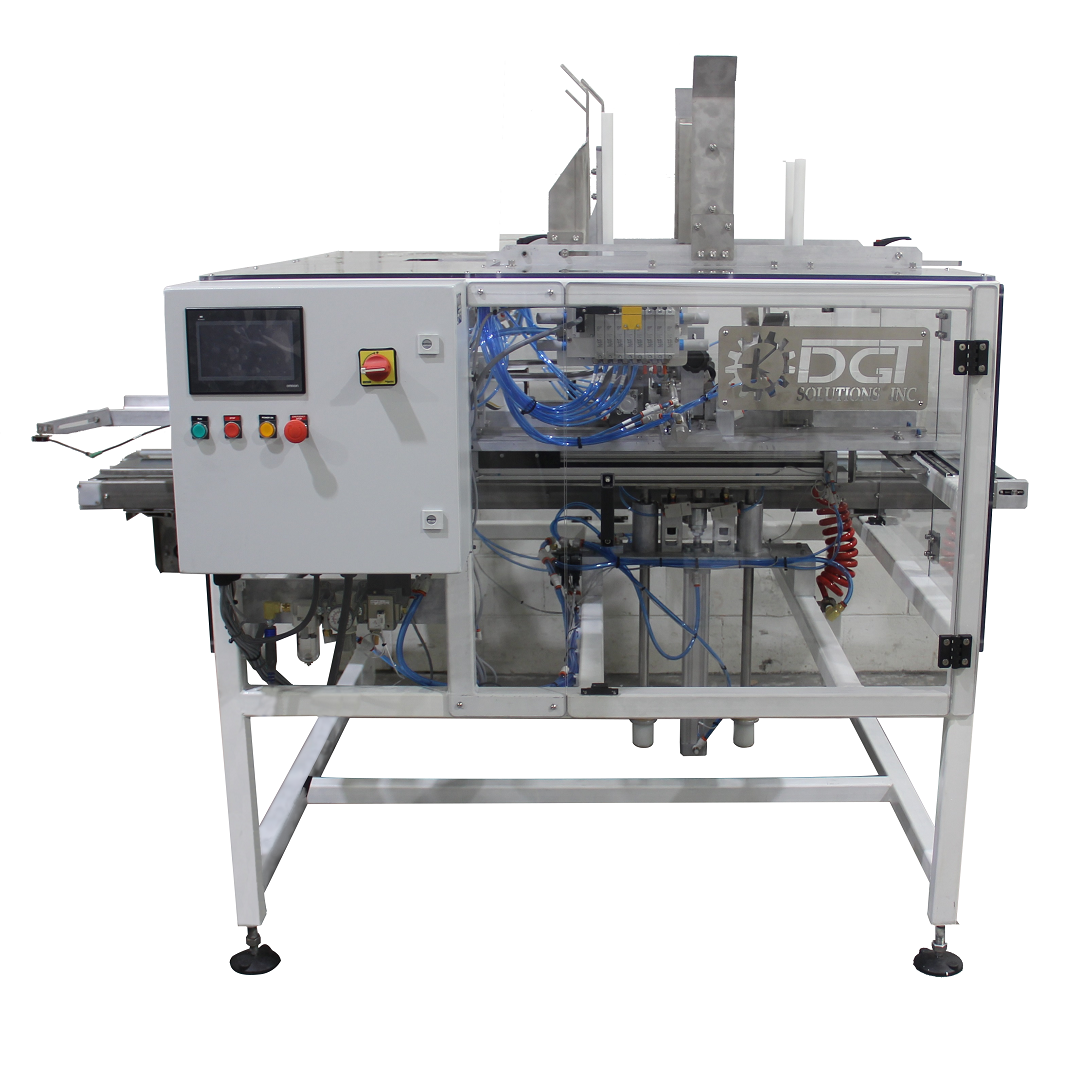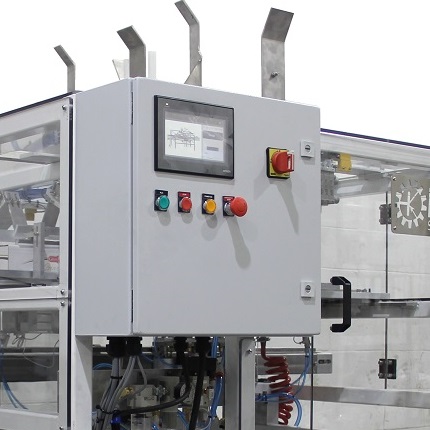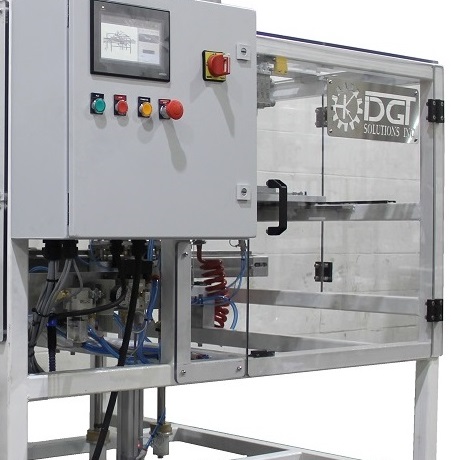
Automated carton folding
The tray forming machine can form a wide variety of tray styles, including slotted trays, trays with lids, and other custom configurations. The automated tray former machine takes a flat cardboard tray blank from the magazine, folds the blank and forms a perfect tray, using either self-locking tabs or hot glue for closure. Once the tray is formed, the machine ejects it onto the output conveyor.
Request A Quote


